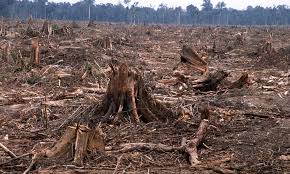
CPI Indonesia has published a short paper on the role of international development partners in financing mitigation and adaptation actions in the land use sectors in Indonesia. The study builds on the 2014 Landscape of Public Climate Finance in Indonesia, which will be updated this year. Based on the Landscape data and a series of interviews with experts working in the field, we evaluate what progress has been made to date, what challenges have been met, and what opportunities lie ahead to effectively support Indonesia, reflecting on the value add that development partners bring to the domestic picture.
Based on the Landscape data and a series of interviews with experts working in the field, we evaluate what progress has been made to date, what challenges have been met, and what opportunities lie ahead to effectively support Indonesia, reflecting on the value add that development partners bring to the domestic picture.
Key findings of the study, also summarized in a short presentation available here, are:
- Just 18% of international development partner climate finance disbursements in 2011 went to the land use sectors, while 70% of GHG emissions in 2012 came from land use change, forestry and agriculture
- Lower disbursement compared to other sectors reflects the dominance of grants for institutional capacity building and research activities. This focus is well directed given persisting challenges that stifle direct implementation activities, including lack of quality spatial planning information, conflict over land rights, illegality in land use and limited institutional capacity.
- However, we find that international development partners have a key role to play in supporting the transition to scaled up direct implementation activities. To enhance the effectiveness of development cooperation on land use in Indonesia, we recommend some practical steps forward:
- Government and development partners need to form a strong, clear and detailed vision for land use that is cross-ministerial, cross-jurisdictional, and cross-donor, to help coordinate and leverage individual efforts
- Government and development partners should work together to create and maintain a comprehensive public database of international development partner activities and disbursements
- Development partners should develop funding mechanisms that operate over extended durations, as well as maximize the use of local delivery agents and systems to transfer knowledge, to ensure the effectiveness of cooperation over time
- Two key ways development partners can further help leverage scaled up finance are: 1) supporting Indonesian institutions and organizations to access international funds directly and promoting innovative public private funding partnerships to reduce risks for investors in this space.
Source: Climate Policy Initiative

